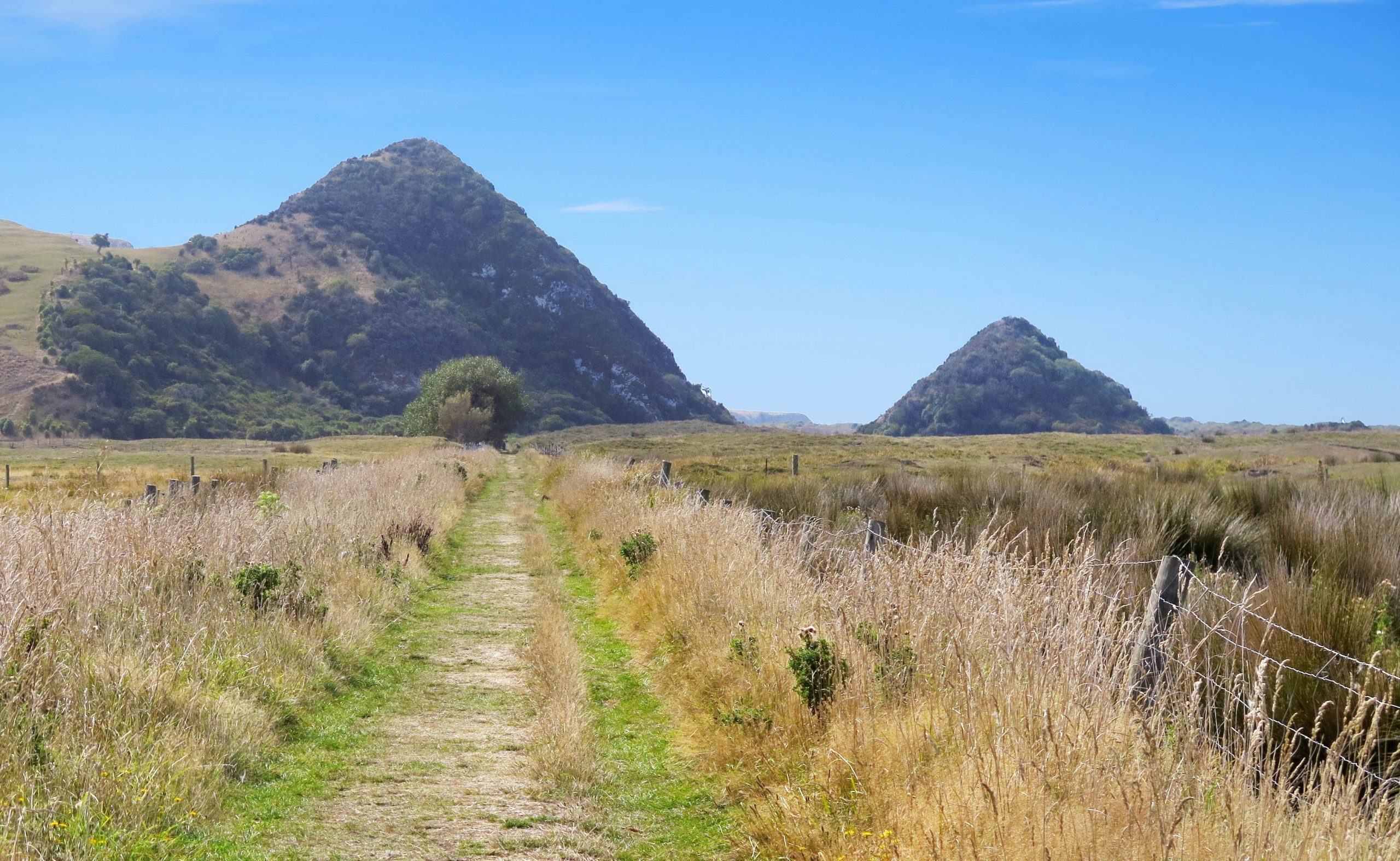The stunning landscape of the Otago Peninsula holds many treasures, including two pyramids.
Located on the remote western side of Dunedin’s Otago Peninsula this walk had us at the word ‘pyramids’.
Unlike the man-made pyramids of Egypt, the two pyramids that greet you at the beginning of this wonderful walk were formed by nature during the first eruptive stage of the volcano upon which Dunedin is built, and they’re made of hard basalt rock.
The trail passes between a large pyramid (Pu-wheke-o-Kia) and a little pyramid (Te Matai O Kia), then winds through a wetland to Victory Beach, home to sea lions, yellow-eyed penguins and a shipwreck.
The 10-minute climb to the summit of the little pyramid rewards with breathtaking 360-degree views of the ocean and across the wetlands and plains of the 231-hectare Okia Reserve. There’s a cave at its base, too, carved out by the sea long ago, which has historical significance and is listed as an important archaeological site. According to local Māori history, it was once used as a shelter by a wounded warrior.
Several Māori settlement sites have been identified within Okia Reserve, and artefacts have been uncovered here, including stone adzes, moa bones and human bones dating back 500 years.
The trail is flat, then gently undulating over sand dunes at the beach end. Victory Beach, the longest and most spectacular beach on the Otago Peninsula, is named thus after steamship Victory (carrying mail and passengers) was grounded by a drunken sailor in 1861. Luckily he struck sand and not the rocks further up the bay, so there were no casualties. The ship’s flywheel can still be seen when the tide is out.
When approaching the beach, caution is advised as sea lions could be resting on the sand dunes. It’s one of two places outside of the Auckland Islands where the New Zealand sea lion is known to give birth.
The beach is also home to yellow-eyed penguins (one of the rarest penguins in the world). In 1991 Okia Reserve was jointly purchased by the Yellow-Eyed Penguin Trust and the Dunedin City Council, primarily to protect the endangered birds, though the area is home to countless other significant bird and plant species too.
Located approximately 27km drive from Dunedin and 7km from Portobello, foot access begins at the carpark at the end of Dick Rd.
Yellow/black markers make the trail easy to follow. The total walk takes about two hours with an optional loop of 30 minutes to Margaret Hazel Slope – but allow extra time for exploring.





